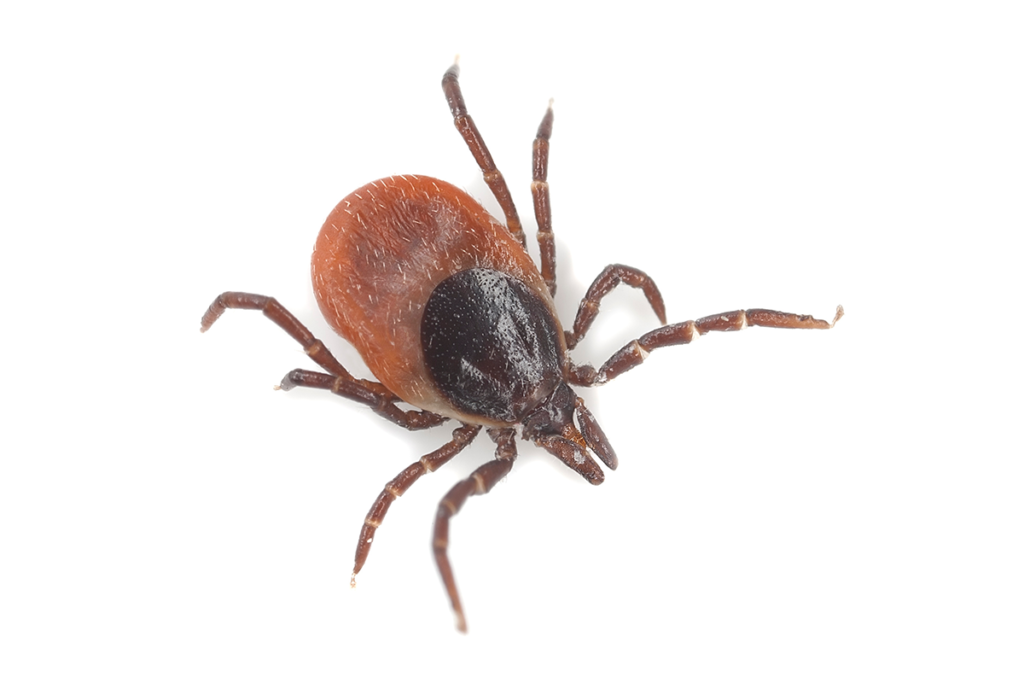Ticks
While this picturesque region boasts stunning landscapes and a moderate climate, it also plays host to an array of insects, including ticks. These tiny creatures often go unnoticed, but they hold a surprising level of complexity. Let’s dive into the enigmatic realm of ticks, exploring their unique biology, habits, risks, and ways to protect yourself and your pets from these small but formidable creatures.
Need Some Help?
Ticks in the Bay Area
Let’s get a better understanding of what ticks are. Ticks are arachnids, closely related to spiders, scorpions, and mites. In the Bay Area, we find a variety of tick species, but the most common ones are the Western Black-Legged Tick (Ixodes pacificus) and the Pacific Coast Tick (Dermacentor occidentalis).
They are small, typically measuring only a few millimeters, but don’t let their size fool you. Ticks have a distinct life cycle that includes four stages: egg, larva, nymph, and adult. Each stage presents unique challenges and opportunities, contributing to the tick’s enigmatic nature.
The Perplexity of Tick Feeding
Ticks are ectoparasites, which means they feed on the blood of their hosts. In the Bay Area, these hosts often include mammals, birds, and occasionally, humans. Ticks employ a specialized mouthpart called a hypostome to anchor themselves firmly in their host’s skin while feeding.
The process of feeding is slow and can last for several days. Ticks, as nature’s patient hunters, secrete a cocktail of enzymes that prevent blood from clotting, making their meal more manageable. This slow, methodical feeding process is not only discomforting but also raises concerns about diseases they can transmit.
Tick-Borne Diseases and Risks
In the Bay Area, ticks are known to transmit several diseases, the most notorious being Lyme disease. Lyme disease is caused by the bacterium Borrelia burgdorferi and can result in a range of symptoms, from flu-like malaise to severe joint and neurological issues. Ticks may also transmit other diseases like Anaplasmosis and Babesiosis.
But before you start thinking that every tick bite leads to disease, keep in mind that not all ticks are infected. The risk varies depending on the type of tick and the prevalence of diseases in the region. Nevertheless, it’s essential to take tick bites seriously and monitor your health after potential exposure.
Tick Prevention and Protection
Now, the big question is: how can you protect yourself and your family from ticks in the Bay Area?
- Wear Protective Clothing: When venturing into tick-prone areas like forests and tall grass, cover up. Long-sleeved shirts, long pants, and closed-toe shoes are your first line of defense against tick bites. Tucking your pants into your socks can also help to deter ticks from reaching your skin.
- Use Insect Repellent: Applying an EPA-approved insect repellent to exposed skin and clothing can significantly reduce the risk of tick bites. Look for products that contain DEET or picaridin for effective protection.
- Perform Regular Tick Checks: After spending time outdoors, inspect your clothing, gear, and exposed skin for ticks. Prompt removal is crucial in preventing transmission of tick-borne diseases. Use fine-tipped tweezers to grasp the tick as close to the skin as possible and gently pull it out.
- Protect Your Pets: Ticks often find their way into your home through your furry companions. Regularly check your pets for ticks and use veterinarian-recommended tick prevention products. Also, keep your yard well-maintained to minimize tick habitats.








